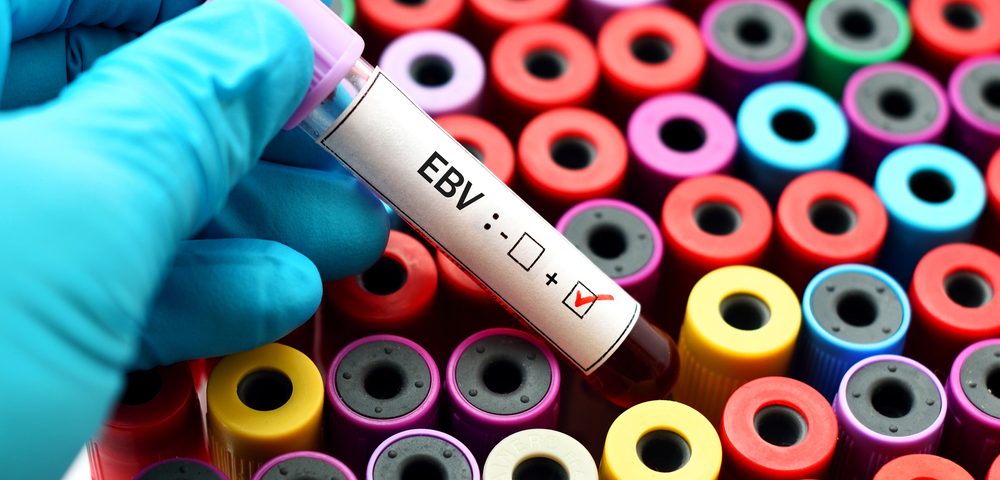#ECTRIMS2019 – Cell Immunotherapy ATA188 Showing Safety, Hints of Effectiveness in Progressive MS in Phase 1 Trial

People with progressive forms of multiple sclerosis (MS) and past exposure to the Epstein-Barr virus are responding to a potential immunotherapy known as ATA188, tolerating the treatment well and with signs that suggest effectiveness, early updated data from an ongoing Phase 1 trial show.
The research, “Preliminary safety and efficacy of ATA188, a pre-manufactured, unrelated donor (off-the-shelf, allogeneic) Epstein-Barr virus-targeted T-cell immunotherapy for patients with progressive forms of multiple sclerosis,” was presented at the 35th Congress of the European Committee for Treatment and Research in Multiple Sclerosis (ECTRIMS) held in Stockholm (Sept. 11–13).
Infection with the Epstein-Barr virus (EBV) is linked to a greater susceptibility to MS. EBV promotes the expansion of immune B-cells, which can produce autoantibodies against myelin, the protective coating of nerve fibers that is progressively damaged in this disease.
People with MS are believed to be deficient in T-cells, which would normally kill EBV-infected B-cells.
ATA188, by Atara Biotherapeutics, is designed to overcome this deficiency by providing allogeneic immune T-cells that target EBV in B-cells. (Allogeneic cells are from donors with no family or genetic relationship to the recipient; an advantage is that these cells are available immediately, or “off-the-shelf.”)
The Phase 1 study (NCT03283826), taking place in the U.S. and Australia, is assessing the safety and efficacy of ATA188 in progressive MS patents — here, a near equal mix of secondary progressive disease (SPMS) and primary progressive MS (PPMS) — ages 18 to 66. Patients are assigned to four groups, each testing a different cell dose: 5 x 106, 1 x 107, 2 x 107, and 4 x 107.
Clinically recognized MS scales are assessing ATA188 effectiveness at baseline (study start), and at roughly 3, 6, and 12 months after initial treatment. These include the Expanded Disability Status Scale (EDSS), the Fatigue Severity Score, the MS Impact Scale, the Timed 25-Foot Walk (T25FW) — where patients walk 25 feet as quickly and safely as possible — the 9-Hole Peg Test of hand and finger skills, 12-Item MS Walking Scale, and tests of visual acuity.
Early data previously reported showed that treatment with ATA188 was well-tolerated across the four groups, with no evidence of cytokine release syndrome (a form of systemic inflammatory response), graft versus host disease (which refers to the attack of the host’s cells by transplanted stem cells), or dose-limiting toxicities.
Preliminary data now reported at ECTRIMS, collected through July 29, 2019, covered the four groups of six patients each (median age, 56).
Results found no dose-limiting toxicities. There were also no reports of clinically significant laboratory abnormalities in any of the groups.
One patient in group 4 (using 4 x 107 cells) dropped out of the study due to a MS relapse that took place “in the setting of an ongoing URI [upper respiratory tract infection] and possible dental infection,” the researchers reported at ECTRIMS.
“Safety results showed that across the four planned dose cohorts, ATA188 was well tolerated in patients with progressive forms of MS, with no evidence of cytokine release syndrome, graft versus host disease, or dose-limiting toxicities,” they added.
Efficacy data were available from the first two groups, and hints of benefit were seen.
Four of the six patients in group 1 — the lowest dose group — showed clinical decline at 6 and 12 months, defined as worsening in two or more MS scales compared to baseline. The other two showed at least partial improvement in these scales at month six, with one of these showing stable disease at 12 months.
In group 2 (1 x 107), all six patients showed either clinical improvement (two people) or partial clinical improvement (four people) at six months, or improvements in two or more or more MS scales. Data for this group did not stretch out 12 months.
Better results in terms of lesser disability were seen in people in group 2, where only one person experienced clinical decline compared to four of the six patients in group 1.
These preliminary results support continuing the trial “to identify the dose for both the OLE [open-label extension] and the randomized, double-blind, placebo-controlled portion (part 2) of the study,” the researchers wrote.
“I am encouraged by the well tolerated safety profile, as well as early findings of potential efficacy in the ongoing ATA188 Phase 1 study,” Amit Bar-Or, MD, a principal investigator in the trial and chief of MS Division at the Perelman School of Medicine at the University of Pennsylvania, said in a press release.
He also favored this study’s “innovative approach,” that of using multiple MS scales to measure benefit.
“I look forward to advancing the study alongside my colleagues for progressive MS patients who have limited treatment options, and where continual clinical decline is expected,” Bar-Or added.
These early data support the potential of a T-cell immunotherapy targeting EBV-infected B-cells in progressive MS, said AJ Joshi, MD, Atara’s senior vice president and chief medical officer.
“Our recent completion of enrollment in the fourth and final dose escalation cohort moves us closer to identifying the dose” to be used in the study’s placebo-controlled Phase 1b part, Joshi added. “We are committed to advancing ATA188 for MS patients, and look forward to presenting additional efficacy and safety results from this study in 2020, including from cohorts 3 and 4.”
Of note, eight of the study’s 14 authors are employees and stockholders of Atara. One other is a member of the company’s Neurology Clinical Advisory Panel.






